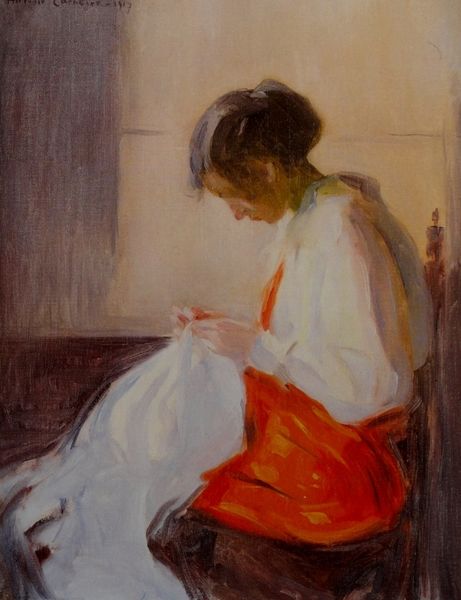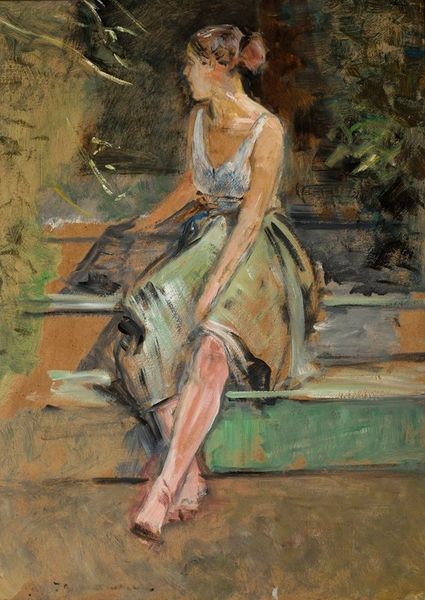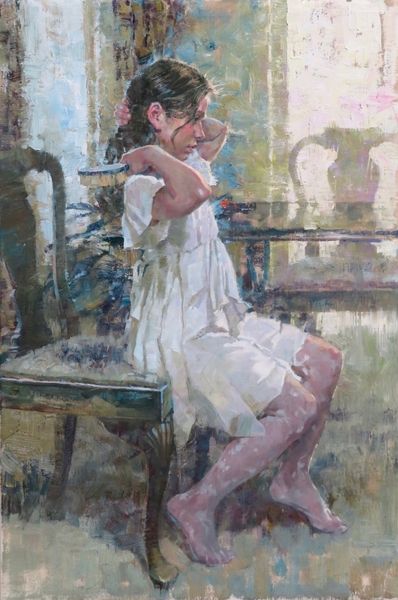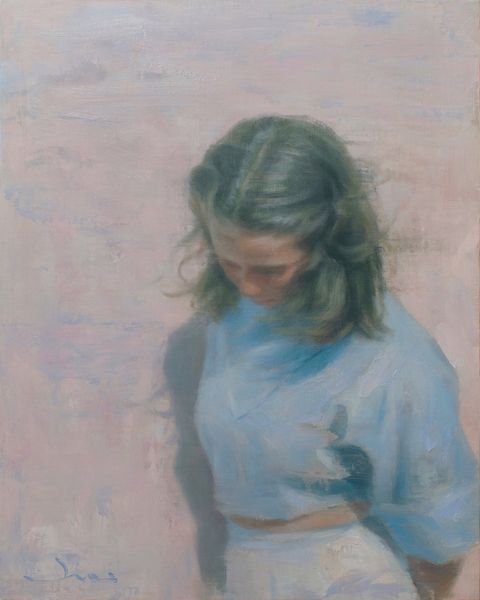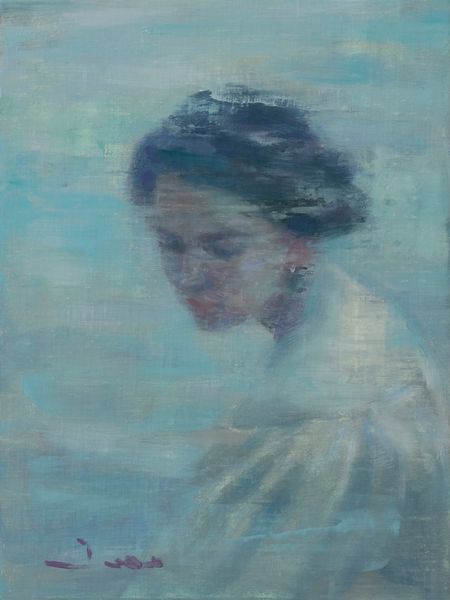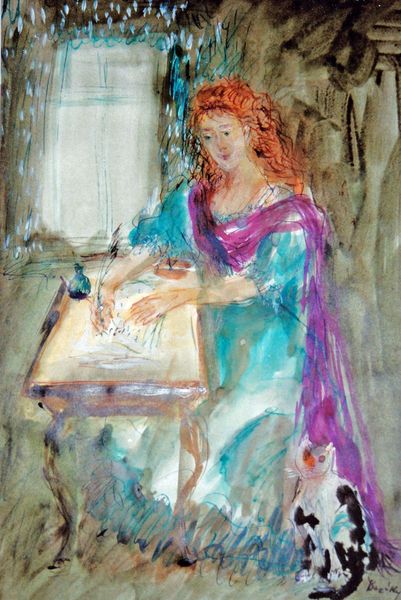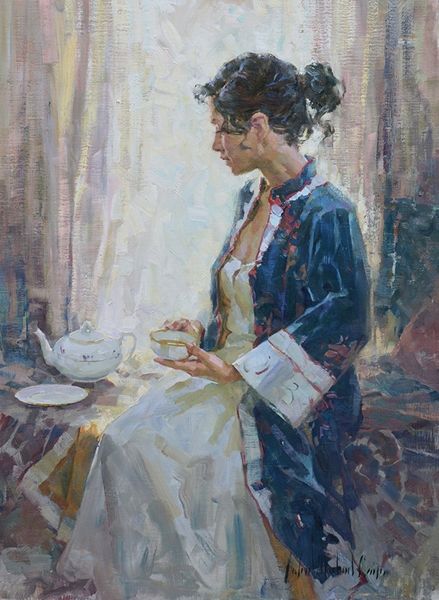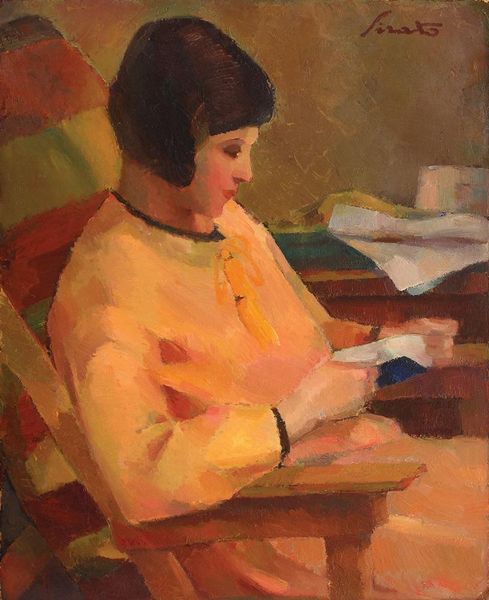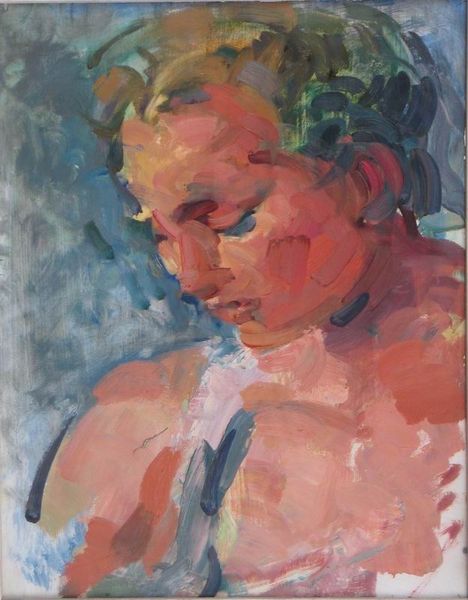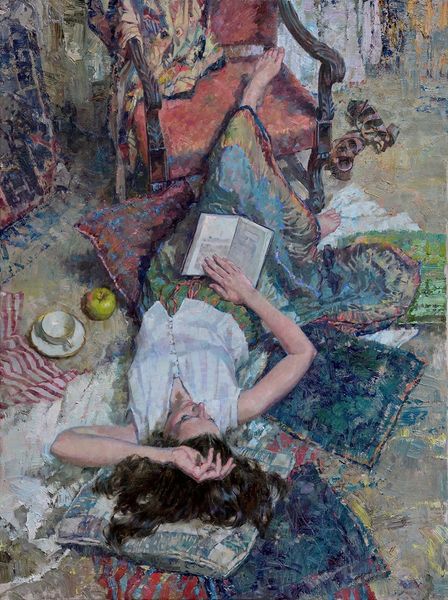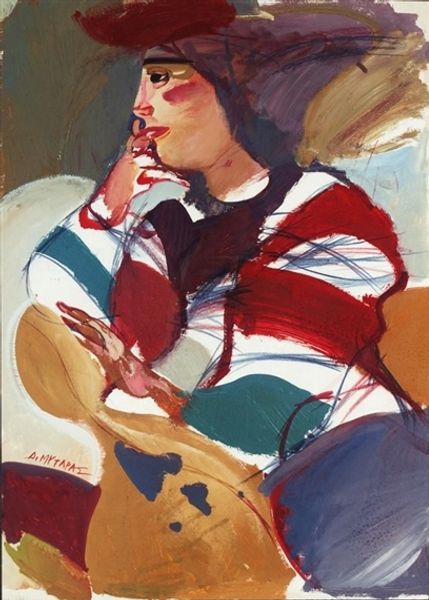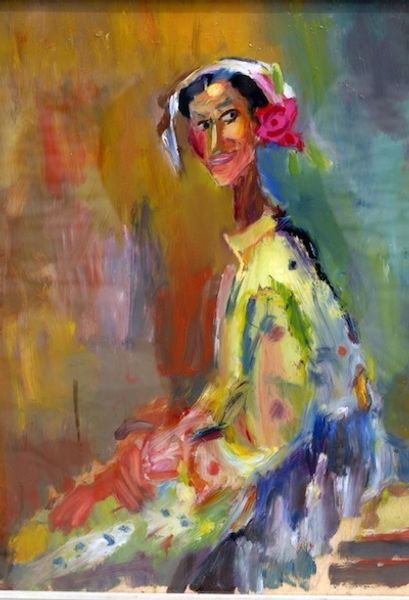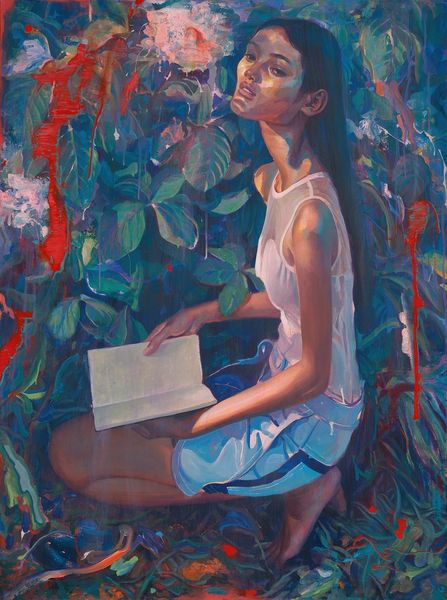
#
abstract expressionism
#
abstract painting
#
impressionist painting style
#
impressionist landscape
#
possibly oil pastel
#
oil painting
#
acrylic on canvas
#
underpainting
#
painterly
#
painting painterly
Copyright: Petros Malayan,Fair Use
Curator: Petros Malayan's "Motherhood," painted in 1971, offers a compelling glimpse into the artist's exploration of familial bonds and the role of women within the domestic sphere. It seems to be executed in oil on canvas. Editor: Wow. It’s all soft edges and quiet concentration. She looks lost in her sewing, a world unto herself, and the way the light hits… it feels very intimate, like a stolen moment captured on canvas. Almost impressionistic. Curator: Precisely. The loose, painterly strokes contribute to this sense of intimacy but it would be also important to underline how this portrayal interacts with feminist art criticism from that time. We must ask ourselves how Malayan frames this idea, considering debates around the male gaze. Editor: That's interesting. My immediate thought wasn’t about that gaze. It felt less exploitative, more... tender? The limited palette, that almost hazy light. Like a memory painting. It feels sympathetic, not like some objectification. Curator: Yet, the very act of portraying the woman in this setting – focusing on domestic labor, albeit with sensitivity – risks reinforcing traditional roles, especially within the socio-political context of the early 70s, when second-wave feminism challenged those very confines. Her inner state and her relationship to the imposed role… Editor: Yes, I see what you mean. But maybe it's not just reinforcing it. There’s also something dignified in her focus, her absorption. It reminds me of my grandmother – that same quiet strength while her hands created things. There’s a pride there, not just obligation. Curator: That reading shifts our focus. And to push your thinking, the muted color palette does offer, perhaps, a critical view of the stifling nature of these roles assigned to women in that period, a quiet resistance to hyper-visibility. It would be nice to find letters from the artist from that moment… Editor: Ultimately, a painting can spark different reactions depending on where you stand, eh? What someone finds comforting might feel confining to someone else. Curator: Precisely, it's the conversation it begins, and its openness to interpretation. This piece invites important dialogues regarding gender, labor, and artistic representation. Editor: Agreed! And perhaps that's the beauty of art; It mirrors back at us our own messy, beautiful, and complex world.
Comments
No comments
Be the first to comment and join the conversation on the ultimate creative platform.
